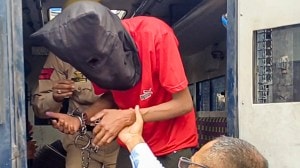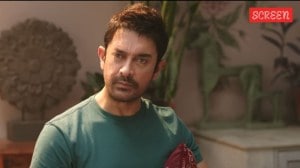Justice must be done
When the Central Bureau of Investigation is seen to be the Central Bureau of Impediment, when an agency appointed to ensure that justice i...

When the Central Bureau of Investigation is seen to be the Central Bureau of Impediment, when an agency appointed to ensure that justice is done seems to have worked to ensure that justice is subverted, it is a matter of the deepest shame and regret. The 450-page judgment of Additional Sessions Judge G.P. Thareja in the Priyadarshini Mattoo murder case stands as a permanent testament to the vulnerability and deficiencies of the criminal justice system in the country.
 Judges are often constrained to acquit people because of lack of evidence. In this case the judge was forced to acquit the young man, who he is convinced committed the murder of the 23-year-old Delhi law student, Priyadarshini Mattoo, because of what he suspected was the deliberate tampering of the evidence by the CBI the investigating agency in the case.
Judges are often constrained to acquit people because of lack of evidence. In this case the judge was forced to acquit the young man, who he is convinced committed the murder of the 23-year-old Delhi law student, Priyadarshini Mattoo, because of what he suspected was the deliberate tampering of the evidence by the CBI the investigating agency in the case.The judge’s surmise was that the father of the accused, who happened to be a senior police officer, had exerted some influence on the process of investigation and that there was deliberateinaction by the police in the case. As he roundly put it, “Rule of law doesn’t seem to be applicable to the children of those who enforce it.”
The judge has been criticised on the grounds that his ruling acquitting the young man charged with the crime went against the spirit of his judicial surmise; that if he was convinced about the involvement of the accused in the crime, he should have convicted him or, at the very least, pressurised the prosecuting agencies into doing their job more professionally in the course of the trial. In any case, his overriding objective should have been to see that the guilty is punished.
Be that as it may, the fact is that the judge has raised many crucial questions which need immediate clarification if the people of this country are to be convinced that they have a criminal justice system that is marked by integrity and equality of all before the law. This is not the first time that the CBI has found itself in a mess of this kind.
In the Syed Modi murder case, forinstance, the hamhanded fashion in which the agency went about collecting evidence provoked Ram Jethmalani, counsel for Sanjay Singh and Ameeta Modi, the accused in the case, exclaim in court, “This case is a case of no evidence, My Lord. The CBI seems to have now turned into the burial ground of investigation.”
Not surprisingly, in 1994, six years after Modi was gunned down, the Supreme Court cleared Sanjay Singh and Ameeta Modi, widow of the slain player, of complicity in that murder because of lack of evidence. But what makes the Priyadarshini Mattoo case particularly disturbing is the surmise that the “lack of evidence” was deliberately staged. In fact, the judge believed that the evidence produced before him was fabricated and the lone eyewitness was also deliberately not produced by the CBI, ostensibly with the purpose of letting the accused off the hook.
Given the grave doubts raised by the judge, matters cannot be left to run their course. Intervention is called for. The authorities shoulddecide whether justice would be served better by reopening the case. It is also time that the highest investigative agency in the land, the CBI, should itself be the subject of investigation vis-a-vis this case. Justice Thareja’s judgment should provoke a desire to ensure that justice is done in the case and seen to be done.



























